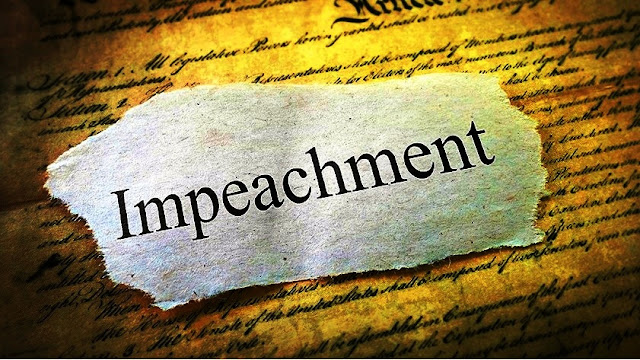Is impeachment criminal or civil?

Impeachment is a sui generis constitutional process — a class of its own. It is dissimilar to civil, criminal, or administrative cases. At most, impeachment may be considered quasicriminal because it is punitive in character: It might result in the removal from office, and perpetual disqualification to hold any public office, of an impeachable ranking public official. Impeachment is neither a legislative process nor an investigation in aid of legislation.
The impeachment process is an exercise by the people, through their duly elected representatives, of the sovereign power to exact accountability from, and impose discipline upon, certain ranking public servants who owe their positions to the Constitution. It is also a mechanism for the implementation of the system of checks and balances in a republican government whose powers are allocated by the Constitution among coequal branches. SOURCE: Frank E. Lobrigo (2017). Impeachment: A class of its own. December 11, 2017. https://opinion.inquirer.net/109377/impeachment-a-class-of-its-own
A main difference from US proceedings however is that only one third of House members are required to approve the motion to impeach the President (as opposed to a simple majority of those present and voting in their US counterpart). In the Senate, selected members of the House of Representatives act as the prosecutors and the Senators act as judges with the Senate President presiding over the proceedings (the Chief Justice jointly presides with the Senate President if the President is on trial). Like the United States, to convict the official in question requires that a minimum of two thirds (i.e. 16 of 24 members) of all the Members of the Senate vote in favor of conviction. If an impeachment attempt is unsuccessful or the official is acquitted, no new cases can be filed against that impeachable official for at least one full year. SOURCE: Philippines. Impeachment. From Wikipedia, the free encyclopedia. https://en.wikipedia.org/wiki/Impeachment
A determination is a purely political question which the Constitution has left to the sound discretion of the Legislature. Although Section 2 of Article XI of the Constitution enumerates six grounds for impeachment, two of these, namely, other high crimes and betrayal of public trust, elude a precise definition. In fact, an examination of the records of the 1986 Constitutional Commission shows that the framers could find no better way to approximate the boundaries of betrayal of public trust and other high crimes than by alluding to both positive and negative examples of both, without arriving at their clear cut definition or even a standard therefor. Clearly, the issue calls upon this court to decide a non-justiciable political question which is beyond the scope of its judicial power under Section 1, Article VIII. (G.R. No. 160261. November 10, 2003)
A determination is a purely political question which the Constitution has left to the sound discretion of the Legislature. Although Section 2 of Article XI of the Constitution enumerates six grounds for impeachment, two of these, namely, other high crimes and betrayal of public trust, elude a precise definition. In fact, an examination of the records of the 1986 Constitutional Commission shows that the framers could find no better way to approximate the boundaries of betrayal of public trust and other high crimes than by alluding to both positive and negative examples of both, without arriving at their clear cut definition or even a standard therefor. Clearly, the issue calls upon this court to decide a non-justiciable political question which is beyond the scope of its judicial power under Section 1, Article VIII. (G.R. No. 160261. November 10, 2003)



